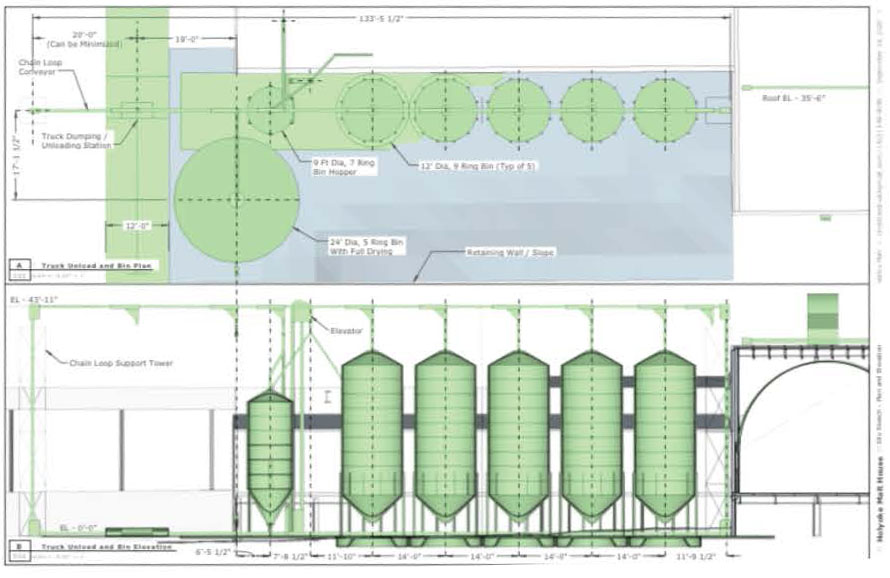
Valley Malt was founded in 2010 when Andrea Stanley started to talk with local farmers about the grains they were growing and began to select varieties of barley to malt for local brewers. In early 2012 they upgraded their equipment to a system capable of malting four tons of grain per week. For the past six years demand has grown to the point where they need to build out more infrastructure to process more grains, but the upfront costs are prohibitive. As a processor that works with local products but does not grow any crops, Valley Malt is not eligible for USDA loans.
When Valley Malt heard about the Food Security Infrastructure Grant (FSIG) program, they were working to move to Holyoke to grow the business. They applied for and received a $500,000 grant to invest in their operation, which Andrea called “like winning the lottery.”
With the funds, Valley Malt is planning to create a grain hub that will accommodate drops of full dump trucks of grain, elevate the grain into a dryer, and clean out the chaff and other debris. The facility will then be able to store one million pounds of clean grain. They’re planning to process 5-6 different types of grain; rye, barley, and a few varieties of wheat. This will be the largest grain hub in Massachusetts for food grade grains. This storage space will be enough for their own malt house and flour mill, as well as for other farmers for milling and animal feed.
“FSIG is going to have waves of effects across the growers we work with,” says Andrea. “We’ll be able to lower our pricing for customers. There are so many benefits from this one investment.”
Valley Malt sells to local grocery stores, farm stands, bakeries, restaurants, colleges, and online. They have also been attending the Holyoke farmers market, and plan to adjust their pricing for the market so their products will be more affordable for lower-income households. Andrea is also speaking with Springfield Public Schools, working to find an affordable price point to be able to provide them with flour. During the pandemic they began donating 100 bags of flour monthly to the Pioneer Valley Workers Center.
Valley Malt has one full-time miller on staff and has hired two part-time workers at $20/hour to staff the Holyoke space. “I love the idea of the program finding those levers that take away a gap, fill it and boost a whole economy around it,” says Andrea. “With our flours there are home bakers that sell 20-30 loaves a week that they sell out of their homes. If you have 100 of those bakers then it really adds up and supports the miller, farmer, and better soil health. Looking down the whole supply chain and seeing where those gaps could get filled would benefit the food system.”